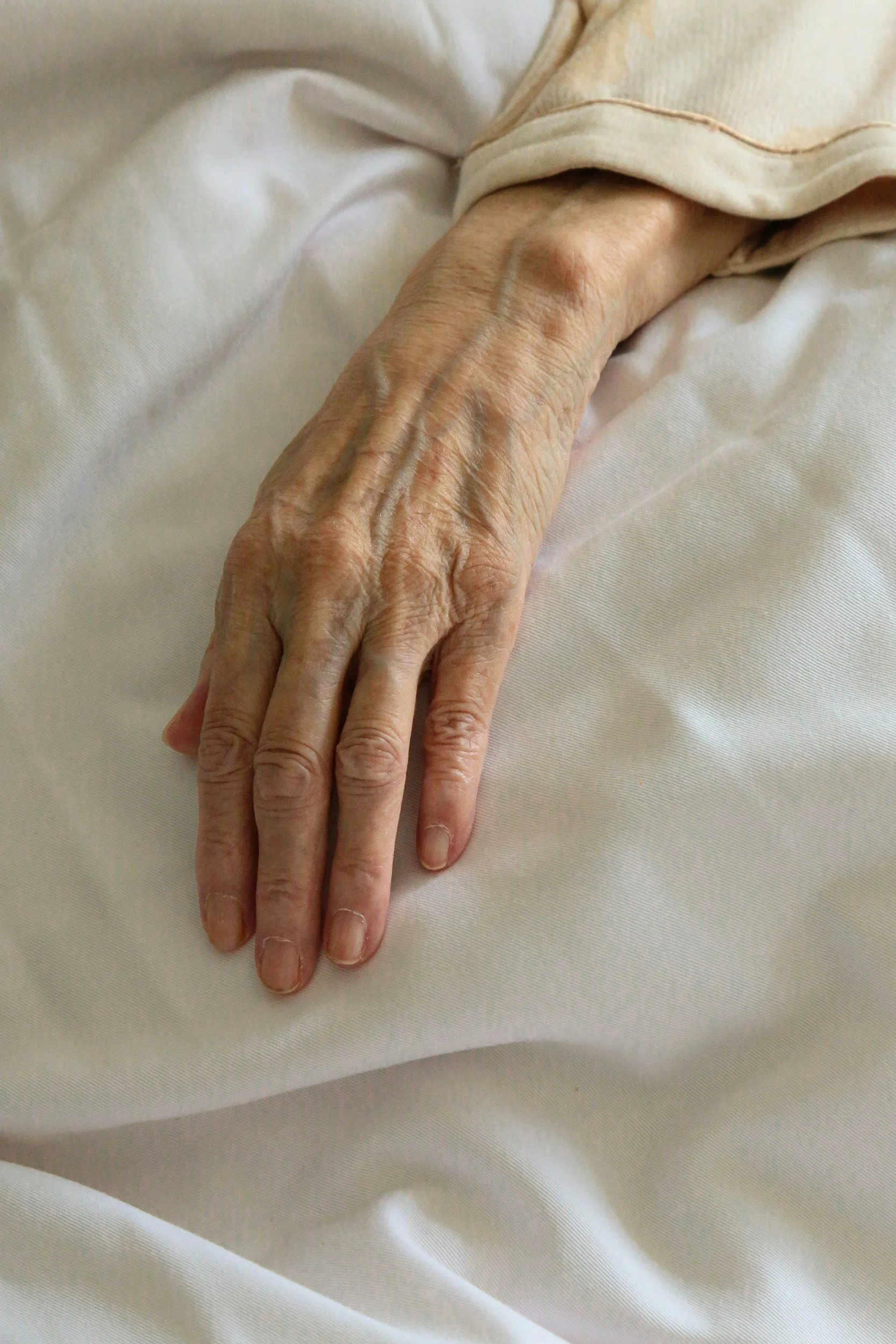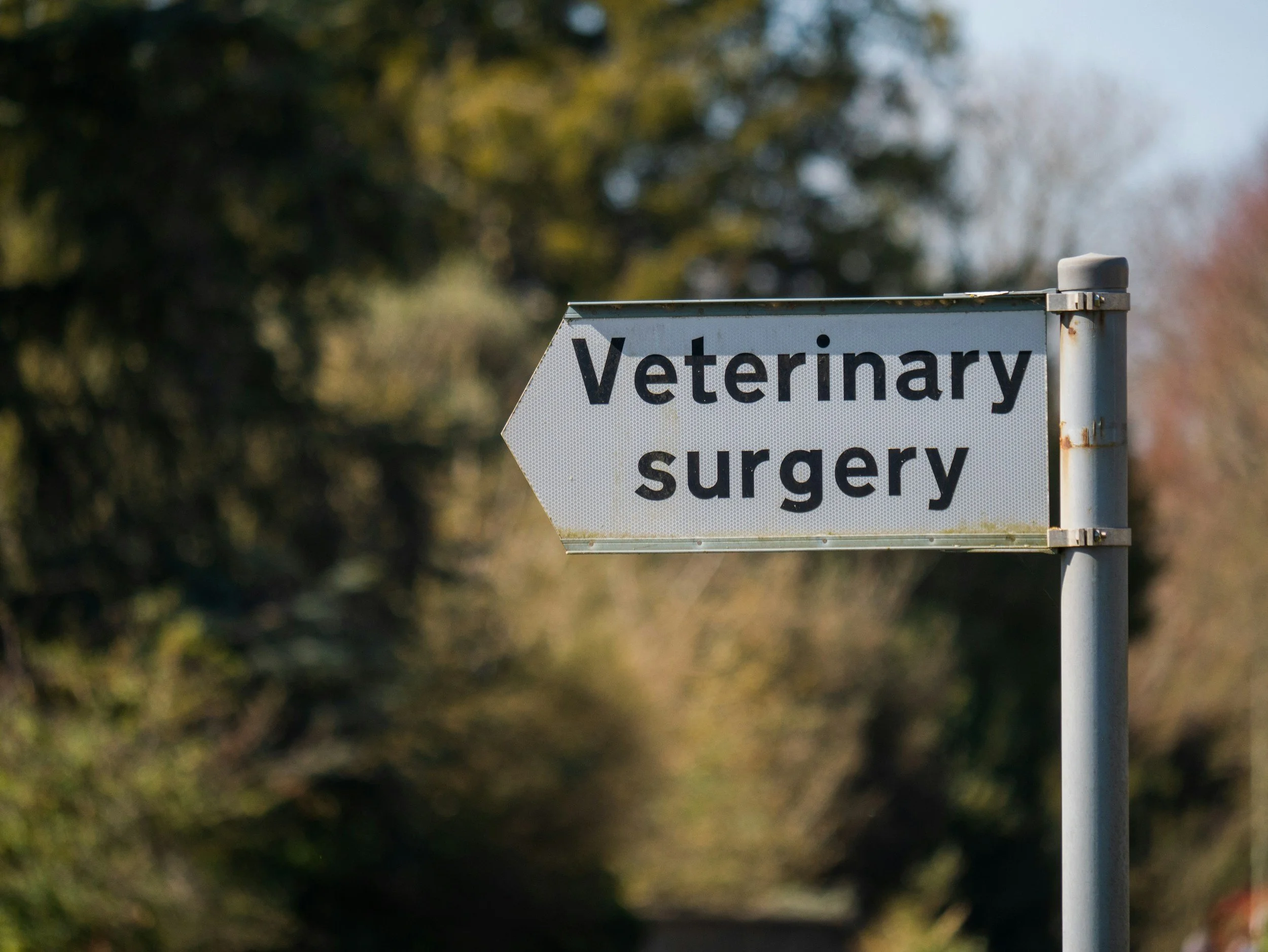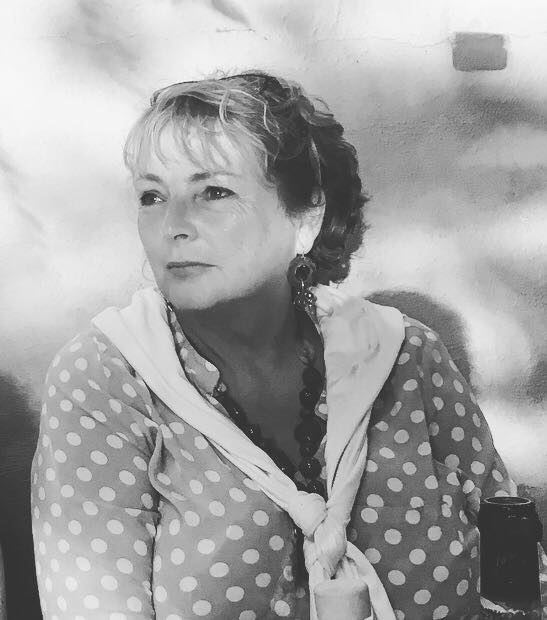Time Heals
He called me. Me. He picked up the phone and dialled my number. Not the favorite daughter who, admittedly, lives farther away, or the “son and hair” as he was known by his flowing locks in the ‘70s, who lives closer.
No. The bane of his life. The thorn in his side. Me.
He could barely breathe, his voice garbled – like there were bubbles of soap in his throat. I told him I’d be right there but, worried, I called my brother first.
“There’s something wrong with dad,” I said. “Can you call the doctor and I’ll pick you up on the way?” It was late on a Sunday night, a lovely uneventful July evening that offered no harbinger of all that was about to change. I’d only spoken with him a few hours earlier, to wish him bon voyage on his trip to Dundalk where he would teach an art course for two weeks. Watercolour painting was his thing. He was very good at it. Very correct.
And therein lies one of the bazillion things wrong with our relationship.
Dad had this habit of leaving the key in the lock when he had secured all for the night. That might seem like a smart thing – you don’t have to look for keys in a crisis – but it also caused a problem. We couldn’t open the door with the spare, retrieved from its hidey hole. My brother, like our father, was a tech man – loved all things gadgety – so he put his mobile phone, a fine brick of a thing, to use. Dad had used the phone by his bed to call me so now he had to haul himself, breathing erratically, from his prone position, to let us in.
Christ, he looked awful. Grey faced, wheezing, a disturbing, bubbly noise erupting from his windpipe. And scared. He looked scared.
When the doctor arrived, dad was already lapsing in and out of consciousness. Suddenly, we were scared too. “Call the priest” are not words you want to hear, not when he was fine, honestly fine, when we had chatted earlier. No time to tidy the piles of unwashed clothes stacked on chairs, to sweep the hall, or wipe the years of tobacco stains from the light switches. No time to stem the flood of shame that I had allowed the man to live like this, that I didn’t fix this. No time to overcome this unpleasant reality. No time. Before the priest could arrive from the village the doctor told us, our dad was gone.
But you can’t put a good man down, and when Fr Mac burst into the room bellowing, refusing to believe us, the man in the bed stirred. I don’t know who was more shocked, us, the doctor, or my dad himself. Not Fr, who just did his thing with the last rites, exactly as dad would have wished.
We followed the ambulance to Wexford General. It was an unreal journey, my brother and I discussing, abandoning, and rehearsing various scenarios. I’m the scenario queen. Give me a set-up, and I’ll have a myriad of ways it could possibly go down. It’s a control thing, my long suffering husband says, but useless, he always adds with an unseemly amount of glee. You never know how you’ll act till it actually happens, he would say. But I knew better. You have to think things through before the bad stuff happens so that you have a sane, rational, and composed plan already made because, God knows, when the shit hits, all bets are off in the calm department.
The harsh white light of the emergency room did nothing pretty for dad’s pallor. Waxy and pale, he looked like death was already visiting and taking tea. Nobody could tell us anything except they were “doing what they could.”
I took Dad’s hand in mine and rested my other on his shoulder. Does everyone say daft, inane things at a time like this? I bet they do. Because do you want your father to lie on a trolley in a curtained cubicle and only hear scary medical things? I don’t think so. My brother was in the corridor phoning our siblings and spouses with the news no one wants to give, or worse, receive. Things did not look good.
“It’s all right, dad,” I lied fluently. “Everything is fine now. The doctors are taking care of you.” I kept up a flow of words – I even told him how nice the ambulance men were – a titbit of information vital to any dying patient. Did he hear me? Haven’t a clue. But he was responsive, the hand clasped in mine squeezed a bit. Maybe.
I spent the night on a trolley in a darkened corridor close to the ICU. And the next night too.
Nurses looked at us curiously as tears streaked down our faces. Little did they know it was that verging on hysteria laughter that caused the collective leaking, not worry. All five of us were in that odd space between the main hallways and the ICU itself, sitting on plastic sofas as uncomfortable as they were ugly. We were doing a crossword, a family pastime, while dad was washed and turned. It was late Tuesday afternoon and my next-up-from-me sister had arrived from England, the eldest from Roscommon. The favourite arrived on Monday and had been in and out, efficient at organising coffees and sandwiches. My siblings told jokes as we did the puzzle, each outdoing the other.
I had made some idiotic attempt at an answer, misspelled and mispronounced of course, which caused unholy mirth. And that led to a “did you hear the one about…” sequence.
And therein was another chink in my disastrous relationship with my parent. I had no sense of humour. Or at least I didn’t have the family sense of humor. The wit, sharp and razor like, the clever asides, the constant punning, the ability to remember every joke ever heard and retell it with gusto – all that, passed by me. Maybe it just ran out by the time number seven arrived. My two eldest brothers died as babies. One was only twenty-three months and the other barely a week. They died within five months of each other. No parent should ever have to deal with that level of insurmountable grief. It’s quite simply untenable.
But back then, sure it was God’s will, wasn’t it?
I had no real rapport with my dad. I never enjoyed spending time with him even as a little girl. By the age of seven I could already feel his disappointment. It was palpable, even if unrealized or unrecognized by either of us. I remember pushing the shopping trolley into his heels in Findlaters on the “big treat” of Saturday shopping to Dunlaoghaire. I hated when it was my turn. I had nothing, nothing to say to him in all the quiet time of the journey in and out on the number eight bus. His irritated, impatient glares when I caught his ankles with my inadequate cart pushing skills, crushed and silenced me over and over.
Shit went down in our family, as it does in every normal, dysfunctional family. Ours was no better or worse than anyone’s.
By my mid-teens, any lingering respect I might have felt for my father was gone.
I didn’t even like him. I may have loved him in some corner of my heart, because I knew I must, but liking and respecting was a choice. I chose not to.
And I was, by then, not afraid to disagree with and worse, challenge, the man of the house, a total aberration in our home.
The artistic talent that brought my parents together was passed down to me. It was a curse. No matter what I drew or painted, it was never, ever, good enough – hence the problem with the “right” way to paint. When I got my leaving cert results with an A in honors art, his comment was to wonder why I didn’t get an A+. It was a harsh reality check – I was still not measuring up. On reflection, I believe he felt I deserved a higher grade but communicating, unless through funny stories, was not his style. Complimenting wasn’t either. He hated my wedding dress – mostly because it was a dress not a gown of lace and frills and of course, no veil. He couldn’t understand, or ever acknowledge, why I kept my own name, went on student marches, listened to punk and—shock/horror—questioned the Catholic Church. Everything I did seemed to bewilder and perplex him.
Yet all I could think of as I shifted uncomfortably on the hard trolley, a lightweight, polyester blanket slipping off throughout the night, was how well he taught me how to change a tire on my first car – this from a man who rarely found third gear when driving his own – who thought going “right at the roundabout” meant right, not around, but could strip and rebuild an engine with ease.
And amends were made. If he died, I thought, at least distance and time had eased the sting of bitterness from our relationship.
No, we didn’t talk about it. That was never going to happen, but something else did happen - to me. Parenthood. As soon as I got used to the responsibility of my firstborn, I began to let go, just a little, of some of the tightly held bitterness that had become my shield in all of our encounters. Looking at my two-year-old in my father’s arms, seeing the tears trickle down his withered, scratchy cheeks, seeing the forty years slip away since he’d held his own dying son, seeing barely checked heartbreak as he gently stroked blond curls so like his little boy’s - that happened.
What did I know about love and loss? Nothing. Not really. My petty disrespect and teen angst was nothing in the face of his kind of pain. My choice to not understand, to not look, or listen, or delve deeper had reared up to smack me in the face. This man, this elderly man remained tortured with pain and unshed grief. And how terrified he must have been showing any real emotion – because, just like that, he knew, in the blink of an eye, we could be gone.
Back in Ireland, living only a few miles from the family home had me bringing him on errands, including Sunday dinners, meeting him for lunch on pension day. My boys were a bit in awe of him, a tall, bearded man with the remains of a west-brit accent, always accessorized with a hand tied, silk bowtie and wonderful, colorful, exotic tales of growing up in the heat and dust that was India during the Raj. Hard not to be enchanted – enthralled even. And I was glad.
A few weeks before his death, I asked him what he would like for his funeral when the time came – what music and readings, what he’d like to be buried in – back to the scenarios, I’m afraid. But this time, my fascination with the probable came in handy.
So I could, in the end, honor his wishes.
It was a good day, the day we buried him. I greeted neighbours and locals who came to say goodbye. They said how proud he was of me. How he loved his trips to the US. What a good daughter I was, he’d told them. What a great mother.
It was hard to take in.
But, when the time came, he’d called me.
-Pamela Hobbs
A winner in the Novel Fair 2015, Pamela subsequently self-published Family Affairs, the MS submitted for the Fair, and her first ever completed book. She has since written the second in the series, Roman Holiday, which is now also available on Amazon in both e-book and paperback formats. A third book, not in The Fitzgerald Series, AlphaBet Suit, written in a different style (first person present tense, alternating between hero/heroine) is in the final editing process, almost ready for submission.
In 2016, Pamela was selected for Date with an Agent with Roman Holiday and again in 2017 with Alphabet Suit. Both events gave Pamela invaluable contacts and the impetus to write her first short story, Time Heals, which was shortlisted for the Colm Tobin International Short Story Awardlast May (2017), as part of the Wexford Literary Festival. This past May, she was once again selected for Date with an Agent with her WIP, Just Desserts, book three in the Fitzgerald series.
While she reads in many genres, Pamela loves to write romance and romantic suspense – where the HEA is always the goal, along with having readers heave a sigh of contentment upon finishing her books. Writing a series is close to her heart because a reader can enter a whole world – many have asked her what is happening to the rest of the siblings from Family Affairs– and she is happy to oblige with future stories weaving around each of the fictional Fitzgerald siblings.
Although proud of her self-publishing journey so far, one of her aims is to work with an agent and be published via a traditional publishing house. Self-promotion is a continuing challenge and although she has twitter, facebook and Instagram as well as a website www.pamelaghobbs.com, she admits to neglecting them shamefully.
Pamela is a member of the online writing group Indulge in Writing and regularly participates in #WritersWise on Twitter.





















